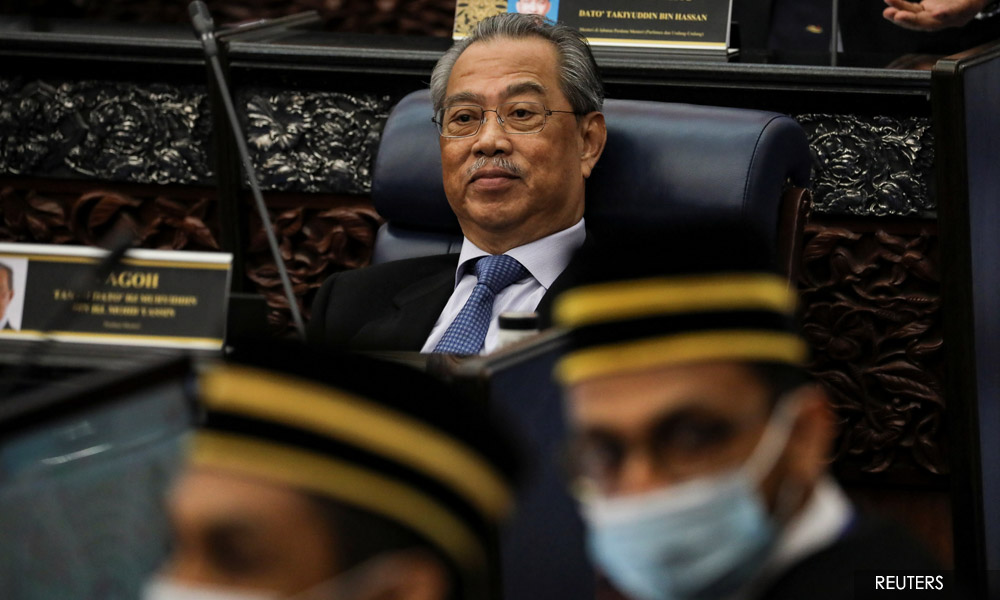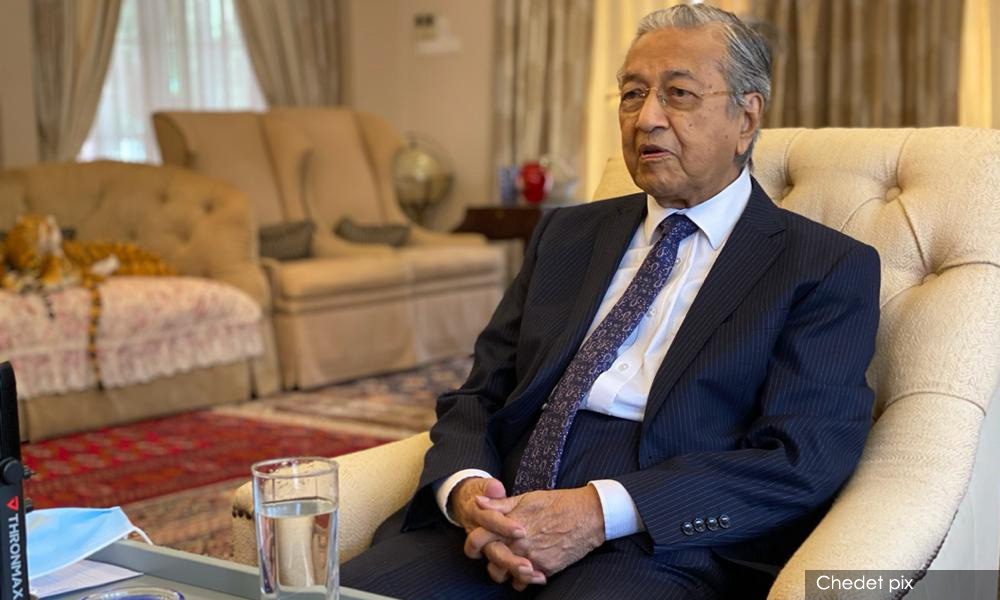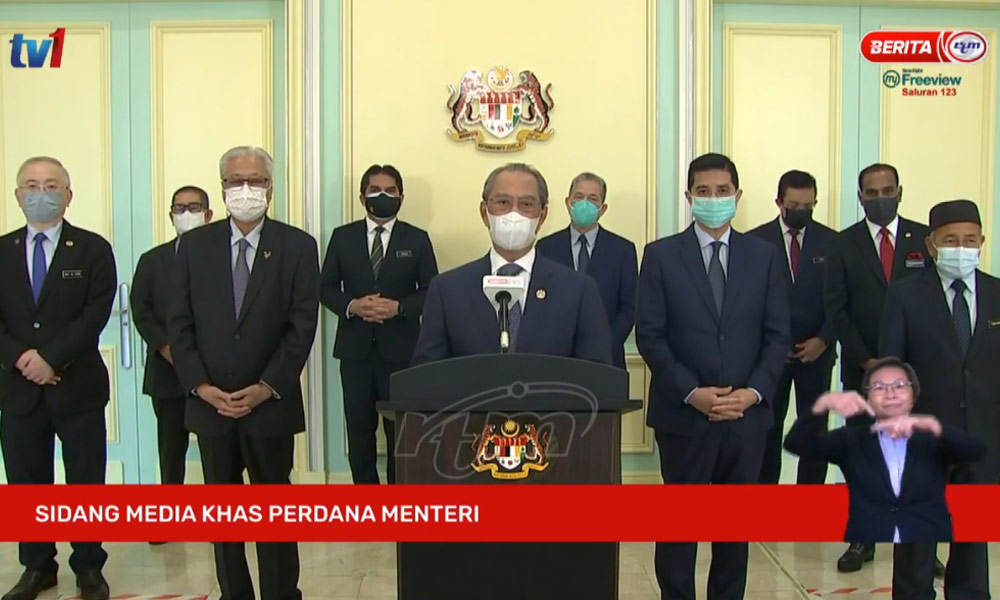Now that Prime Minister Muhyiddin Yassin looks set to tender his resignation imminently, following his disastrous televised address to the nation on Aug 13, let us focus our attention on his potential successors.
It is anticipated that the Yang di-Pertuan Agong will appoint either Opposition Leader Anwar Ibrahim or a nominee from Umno, who is yet unknown.
I submit that Anwar is the ideal candidate to lead the country out of the current multiple political, health and economic crises which have devastated the nation as never before.
Founder of the Reformasi movement more than two decades ago, Anwar has consistently campaigned to bring systemic reforms to transform Malaysia into a progressive and prosperous multi-racial Malaysia.
He would have succeeded many years ago if not for our notoriously skewed electoral system, which perpetuated the BN government’s corrupt rule.
The 2018 electoral victory by the opposition alliance Pakatan Harapan would have given Anwar the chance to fulfil his dreams if the Harapan government was not abruptly terminated two years later due to then-interim prime minister Dr Mahathir Mohamad’s treasonous manoeuvres.

The latter gave rise to the current Muyhiddin-led ragtag Perikatan Nasional (PN) coalition government which has proven to be an unparalleled disaster.
PN's disastrous rule
Throwing the Federal Constitution and rule of law to the wings and perpetually preoccupied with devious manoeuvres to prolong its illegitimate rule, PN has grossly mismanaged the Covid-19 pandemic crisis to allow it to escalate to among the severest per capita in the world, bringing the economy to the brink of collapse.
What we need now is a leader of proven exceptional integrity and competence to lead the country out of the current quagmire.
And Anwar is the ideal candidate who fits the bill.
He had suffered two decades of incessant political harassment and persecutions, including a total of 10 years in jail from politically motivated charges on two separate occasions.
Despite going through such unprecedented adversity, Anwar has not bent one bit on his conviction to bring systemic reforms to restore democracy and rule of law, which includes stamping out corruption, cronyism, and racism, restoring independence to the judiciary and reinstating integrity to our law-enforcing institutions, including the police and MACC.
These are the reforms that will veer the country onto the path of genuine nation-building towards an integrated progressive and prosperous multi-racial nation.
Anwar’s distinguished record
Now that we have shown that Anwar is a man of unbent principles and his political ideals are beyond reproach, what about his competence as an administrator and leader?
To answer that, we must remember that he was finance minister for seven years (1991–1998) and deputy prime minister for five years (1993–1998), during which his distinguished leadership is still cherished by those above 45 years old.
It is pertinent to recall that Anwar’s years as finance minister were the only years when the nation achieved budget surpluses in recent memory.
And his distinction as the country’s finance manager was further given international recognition when he was selected by global finance magazine Euromoney as finance minister of the year as well as elected by World Bank/IMF as its development committee chairperson.
His unquestioned integrity as finance minister and deputy prime minister was further demonstrated during the 1997/1998 Asian financial crisis when he steadfastly resisted the attempt by Mahathir and his cohorts to use public funds to bail out the many debt-ridden Umno crony companies from imminent collapse.

It was this conflict of interests that contributed mainly to Mahathir’s abrupt axe on Anwar, that ushered in his long and tortuous crusade to bring reforms to the country.
Now that we have demonstrated Anwar’s unquestioned integrity and competence, what about the number of MPs supporting him?
Don’t be obsessed with numbers
Granted that among the power blocks, Anwar has the biggest bloc of 88 supporting MPs from his own coalition Harapan - but that would not be sufficient to form the majority of minimum 111 MPs, even with a few external Harapan-supporting MPs thrown in.
But that should not dissuade the Agong from appointing Anwar as PM, for under the prevailing “political frogging” climate where MPs have demonstrated the propensity to hop from one camp to another, Anwar should be able to attract enough supporters in no time to form a stable majority once he has risen to be the prime minister.
This is particularly so when Sarawak’s GPS (with its 18 MPs), the political ideology of which is most compatible with that of Harapan, has already indicated its tendency to support whoever occupies Putrajaya.
It is my firm belief that once Anwar is made the PM, GPS and Sabah’s Warisan (with its eight MPs) would be willing to share the seat of power in Putrajaya. And Harapan would then have a stable majority to rule comfortably.
And with the clean and professional record of Harapan leaders demonstrated during the short stint of Harapan rule, despite the treacherous hindrances to reforms put up by Mahathir, the new Anwar-led government will surely turn a new leaf for the country.
Then, let us turn around to look at the other possibility: an Umno candidate as the PM.
Allow Agong to exercise his wisdom
Keeping in mind that Umno has the second-largest presence in the current PN cabinet, and its world-shattering financial scandals that contributed to its 2018 downfall for the first time since Independence, Umno (with its 38 MPs) will be ill-suited to take over the rein of power.

The replacement of Muhyiddin by an Umno nominee will not alter the downward course of the country, especially when the present PN coalition is kept intact.
In any case, the Federal Constitution is crystal clear that when the PM resigns due to loss of majority support, the entire cabinet must resign concurrently, giving the Agong a free hand to appoint a new PM to form a new government – Article 43(4).
And for such an appointment, no numerical majority needs to be established as a precondition.
The Agong’s judgment of an MP who “is likely to command the confidence of the majority” of MPs is sufficient for him to exercise his prerogative – Article 43(2)(a).
Let us not be obsessed by numbers at this extraordinary time of unrest and crisis that may throw the country into further turmoil and allow the Agong to exercise his wisdom to appoint the best leader that would lead the country out of the current predicament. - Mkini
KIM QUEK is the author of the banned book "The March to Putrajaya", and best-seller "Where to, Malaysia?".
The views expressed here are those of the author/contributor and do not necessarily represent the views of MMKtT.




No comments:
Post a Comment
Note: Only a member of this blog may post a comment.